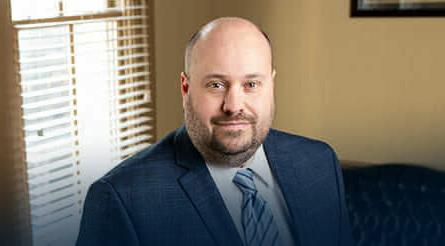Long-term Care Options
According to data compiled by the Administration on Aging, senior citizens — defined as those age 65 or older — numbered 44.7 million in 2013 and represented about 14.1 percent of the U.S. population. By 2040, it is estimated that that number will increase to 21.7 percent and will reach 98 million seniors in 2060. Those reaching age 65 have an average life expectancy of an additional 19.3 years, which means the need for long-term care facilities will only grow.
Estate planning includes the issues of aging, such as senior housing, home healthcare, and nursing home care. The process of finding appropriate long-term care for a loved one can be complex and time-consuming. It is important to not get overwhelmed and to involve the prospective resident in the decision-making as much as possible.
While there are alternatives that may be appropriate for some situations, Indiana’s system of long-term care primarily relies on nursing homes. Community services, home care, subsidized senior housing, group homes, and assisted living facilities offer a wide range of services and accept various forms of payment. Indiana has 16 Area Agencies on Aging (AAAs) that are good resources for anyone needing more information, assistance, or referrals to these alternatives to nursing facility placement.
Many people have chronic conditions that leave them unable to live independently, and they need skilled care. Nursing homes in Indiana are often referred to as comprehensive care facilities. The Comprehensive Care Facility Licensing and Certification Program enforces the rules and regulations for long-term care facilities through surveys and investigation. The Indiana State Department of Health (ISDH) Division of Long Term Care is responsible for state licensing and federal certification programs for long-term care facilities.
Indiana has 543 certified nursing homes across the state, with a total of 52,982 beds and a variety of ownership models. Some long-term care facilities are for-profit agencies (commonly owned by chains or corporations), while others are managed by non-profit organizations. Availability must be taken into account when considering these facilities. The ISDH evaluates the occupancy rate for nursing homes twice a year.
As of January 2016, almost 39,500 beds were occupied, making the occupancy rate 75 percent.
Unfortunately, long-term nursing home care is usually not covered by traditional health insurance. An annual survey assessing state and regional data reports 2015’s average costs for long-term care in Indiana were $215 per day, or $78,475 per year, for a semi-private room in a nursing home and $250 per day, or $91,250 per year, for a private room in a nursing home.
Most people end up paying for nursing home care until their personal assets run out; then they may qualify for Medicaid to pick up the cost. Careful planning, however, can help protect those assets, which is why an elder law or estate law attorney should be consulted.
So, where do you begin? A smart first step is to sit down and identify the issues on which you cannot compromise, including those services and features that are absolutely necessary for your loved one. For example, does your loved one need help with certain daily activities? Does your loved one need specialized care for a condition such as Alzheimer’s or dementia? Does your loved one have a pet? Once you have that list, choose a handful of facilities that meet those criteria and go for a visit. There is no substitute for a visit to have questions answered and show you what areas you need to be concerned about. Don’t be distracted by a nice lobby or a friendly tour guide. This is where your loved one will be living – ask questions of staff and residents, and stop by a second time on a different day at a different time to get another look. Some things to assess:
- Are there staff on call 24 hours a day?
- What is the staff-to-resident ratio?
- How is medication stored and handled?
- What are the procedures for emergencies?
- Are housekeeping and laundry services available?
- Is the location convenient for visitors and in a safe area?
- Is the facility clean?
- What security measures are in place?
- Are the room sizes adequate?
- Are there organized activities for residents?
- What are the visitor restrictions?
- Do residents have a choice of roommates? What procedures are in place if there is problem?
- Are there smoke detectors and sprinklers?
- Is the staff friendly?
- What is the mood and condition of the current residents?
- What is the quality of the food? Any variety?
- Are there outdoor areas for resident use?
Skilled-care facilities can be great resources for certain patients. If you are considering a nursing home for your aging loved one, do some research to find the best match. While we hope that your experience is a positive one, not all facilities provide quality care. If you believe that your loved one has suffered an injury or a decline in their condition due to the care they have received at a nursing home, or if you have any questions about this topic, you can find out more by discussing it with the New Albany, IN, long-term care attorneys at Church, Langdon, Lopp, Banet Law. We have worked with many families in Indiana and in Kentucky, and we look forward to working with yours. For skilled and knowledgeable representation, contact us by calling 812-725-8224 or by filling out our online form. Based in New Albany, Indiana, we proudly serve communities throughout Kentuckiana; including, but not limited to, Jefferson County, KY, Floyd County, IN; and Clark County, IN.
Attorney Gary Banet
 Gary is licensed to practice law in both Indiana and Kentucky. He concentrates his practice in estate planning, estate and trust administration, estate and trust litigation, guardianships, elder law and special-needs planning. Gary earned his J.D. from the University of Louisville, Louis D. Brandeis School of Law, and formerly practiced law at Bingham Greenebaum Doll and Wyatt, Tarrant & Combs. [ Attorney Bio ]
Gary is licensed to practice law in both Indiana and Kentucky. He concentrates his practice in estate planning, estate and trust administration, estate and trust litigation, guardianships, elder law and special-needs planning. Gary earned his J.D. from the University of Louisville, Louis D. Brandeis School of Law, and formerly practiced law at Bingham Greenebaum Doll and Wyatt, Tarrant & Combs. [ Attorney Bio ]







